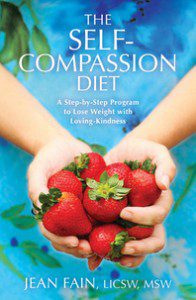 When I was in elementary school, every year I faced the dreaded day we’d be herded into the gym, lined up, and one by one put on a scale. The dreaded part was when the teacher called out our weight, which I saw as an announcement to let all the kids know if each of us was slim or fat. It was traumatic to me. I was tall for my age, which logically made me weigh more than the petite girls. Our height was measured too but we were too young to understand that variable. Everyone looked at me like I was a horse! The scale called me fat! So I hated scales into adulthood. Now I weigh myself every morning, without stress. It helps me see my ebbs and flows and tells me when I need to watch my eating a little more.
When I was in elementary school, every year I faced the dreaded day we’d be herded into the gym, lined up, and one by one put on a scale. The dreaded part was when the teacher called out our weight, which I saw as an announcement to let all the kids know if each of us was slim or fat. It was traumatic to me. I was tall for my age, which logically made me weigh more than the petite girls. Our height was measured too but we were too young to understand that variable. Everyone looked at me like I was a horse! The scale called me fat! So I hated scales into adulthood. Now I weigh myself every morning, without stress. It helps me see my ebbs and flows and tells me when I need to watch my eating a little more.
Now I have a good relationship with my scale but for many people, getting on it can be a source of pain and discouragement. So I’m happy to have Jean Fain, a Harvard Medical School-affiliated psychotherapist specializing in eating issues, back as my guest today. In her book, The Self-Compassion Diet: A Step-by-Step Program to Lose Weight with Loving-Kindness (Sounds True, January 2011), she shares her more gentle method of losing weight, which has been very effective for her clients. Below Jean explains how to see if your relationship with your bathroom scale needs to be changed:
Divorce Your Bathroom Scale?
by Jean Fain
Dieters have a dysfunctional marriage with the bathroom scale. Case in point: Carrie Fisher. You might know her better as Debbie Reynold’s daughter, Princess Leia or Jenny Craig’s new spokeswoman.
In one breath, the actress-turned-diet-advocate is telling Oprah viewers, “I’m terrified of scales.” In the next breath, she’s telling blog readers, “What I’ve ultimately decided is that by knowing my weight I have the power and/or awareness to actually do something about it.”
The well-intentioned dieter’s new attitude echoes the prevailing wisdom: Commit to weighing yourself regularly, and you’ll be glad you did, and lighter, too! This isn’t Fisher’s wishful thinking; it’s a solid scientific conclusion. According to the National Weight Control Registry, a research database of 5,000 individuals who’ve maintained at least a 30-pound weight loss for one year, the overwhelming majority have committed to weighing in at least weekly.
But knowing that successful waist watchers have made a commitment to their scale doesn’t mean you have to settle for a love-hate relationship with yours. If the object of your disaffection truly makes you miserable, remember: You are not legally bound to this inanimate object.
Seriously, if, in your dieting life, you’ve approached the scale like an on-again, off-again romance, now is the time to look before you leap on or off again. Instead of reflexively renewing your vows or divorcing your scale once and for all, ask yourself, “Has weighing in done more to help or hinder my healthiest intentions?”
If you’re convinced that regularly stepping on the scale eventually pushes you off the “diet” wagon, you would likely do better with a more neutral measure (a tape measure, clothing size, fat caliper).
If your jury’s still out on weighing in, give yourself permission to weigh the evidence. First, consider whether regular weigh-ins have hindered past slimming efforts. If the scales proved a hindrance, think about when that was, where you were in your life, how you approached it. On the days you gained a pound or two, did you allow yourself even an ounce of self-compassion?
Then, following the same line of questioning, consider whether the scale has proven helpful. Remember as many specifics as you can: Did you weigh in publicly or privately? Was your attitude more objective or reactive? The embodiment of loving-kindness or tough love?
My weight-management clients who consider the scale more friend than foe approach it with a mix of objectivity and self-compassion — objectivity for assessing weight trends, self-compassion for addressing emotional reactions to less-than-favorable trends.
Before you reach your verdict, you may find you need more evidence. If that’s your case, practice taking a kinder stance on the bathroom scale. Whether you gain or lose, deepen your breathing and meditate on loving-kindness. Silently wish yourself safety, health, happiness and ease. Then objectively review what you have eaten since the last weigh-in, making connections when you can between your nutritional intake and the digital read-out.
Over time, notice whether a kinder, more objective viewpoint improves your relationship with the scale. Collect as much evidence as you need in order to close the case.
**************
Check out Jean Fain’s book, The Self-Compassion Diet: A Step-by-Step Program to Lose Weight with Loving-Kindness (Sounds True, January 2011).
*****************************
Take the self-love challenge and get my book, How Do I Love Me? Let Me Count the Ways for free at http://howdoiloveme.com. And you can post your loving acts HERE to reinforce your intention to love yourself.
Please leave comments under my posts so we can stay connected.

